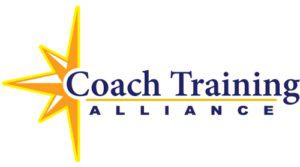Becoming a certified life coach is a transformative journey that allows you to empower others to achieve their goals and lead fulfilling lives. It’s a profession that demands not only passion and empathy but also the right qualifications and skills. Whether you’re driven by a desire to help others, explore a new career path, or deepen your understanding of human behavior, earning a certification can elevate your credibility and open up new opportunities.
In this comprehensive guide, we’ll walk you through the steps on how to become a certified life coach, covering everything from choosing the right certification program to building a successful coaching practice.
What Is a Certified Life Coach?
A certified life coach is a trained professional who helps clients set and achieve personal or professional goals. Unlike therapists who focus on mental health, life coaches concentrate on the future by helping clients define their objectives and create actionable plans to reach them. Life coaches typically work in areas like career transitions, relationships, health, and personal development.
Becoming certified means you have undergone training and assessment from an accredited life coaching program, confirming your expertise in the field. Certification often leads to greater credibility, higher earning potential, and access to better opportunities for client growth.
Why Become a Certified Life Coach?
Certification offers many benefits that go beyond just learning the skills of coaching. Here are some key reasons why certification matters:
- Credibility: Clients are more likely to trust and hire certified coaches because certification assures a standard of competence.
- Structured Learning: Accredited programs offer a well-rounded education that covers essential coaching skills, ethical guidelines, and practical experience.
- Networking Opportunities: Certification programs often provide access to a network of professionals, mentors, and resources that can help you grow your practice.
- Earning Potential: Certification can enhance your earning capacity as clients are willing to pay more for coaches who have formal qualifications.
Step 1: Self-Reflection and Research
Before diving into a certification program, it’s important to reflect on your personal and professional goals. Life coaching is a fulfilling career, but it requires empathy, patience, and a genuine desire to help others. Consider the following questions:
- Why do you want to become a life coach?
- What kind of clients do you want to work with?
- Are you more interested in personal coaching (such as relationships or self-improvement) or professional coaching (such as career transitions)?
Once you’ve clarified your motivations, begin researching the best coaching programs that align with your vision. Start by exploring Coach Training Alliance, which offers comprehensive certification programs designed for both beginners and seasoned professionals.
Step 2: Choose the Right Certification Program
Choosing the right life coach certification program is crucial. You want a program that is accredited, offers high-quality training, and aligns with your career aspirations. The International Coach Federation (ICF) is a global accrediting body that sets industry standards for coaching programs. Opting for an ICF-accredited program ensures that your certification will be recognized and respected by clients and employers worldwide.
Here are some factors to consider when choosing a program:
- Accreditation: Look for programs that are accredited by ICF or other recognized coaching organizations. This ensures that the program meets industry standards.
- Course Content: Make sure the curriculum covers essential coaching techniques, including active listening, goal setting, accountability, and ethical coaching practices.
- Format: Decide whether you prefer online or in-person learning. Many programs, such as those offered by Coach Training Alliance, provide both options, giving you flexibility in how and when you complete your certification.
- Mentorship: Many top-tier programs offer mentorship or supervised coaching opportunities. This can be invaluable in helping you gain confidence and real-world experience.
- Cost: Certification programs can range from a few hundred to several thousand dollars, so consider your budget and payment options.
Programs like those offered by Coach Training Alliance provide detailed class schedules and offer flexible learning formats to suit your lifestyle.
Step 3: Enroll in a Life Coaching Program
Once you’ve chosen the right program, it’s time to enroll and begin your journey to becoming a certified life coach. Most programs last between six months and a year, depending on the structure and intensity of the curriculum.
During the program, you’ll cover a range of topics, including:
- Coaching Foundations: The basics of life coaching, including understanding the coach-client relationship, ethical considerations, and goal-setting techniques.
- Coaching Skills: Essential tools like active listening, powerful questioning, and accountability frameworks.
- Specialized Training: Depending on your chosen niche (career, relationship, wellness, etc.), you’ll learn specialized coaching techniques to address specific client needs.
- Practice and Feedback: Many programs offer opportunities to practice coaching with peers or real clients. You’ll receive feedback from instructors and mentors to hone your skills.
Step 4: Practice, Practice, Practice
One of the most important aspects of becoming a successful life coach is practical experience. Most certification programs include a practicum or supervised coaching period, where you work with actual clients and receive feedback from mentors or instructors. This hands-on experience is invaluable for building confidence and developing your coaching style.
If your program doesn’t include a practicum, seek out opportunities to practice your skills independently. Consider offering free or discounted coaching sessions to friends, family, or community members. This will not only give you the experience you need but also help build a base of testimonials for your future practice.
You can also join life coaching communities or professional organizations to find practice partners. Organizations like Coach Training Alliance provide a network of coaches with whom you can connect, practice, and share insights.
Step 5: Get Certified
Upon completing your life coaching program, you’ll need to pass a final assessment to receive your certification. This assessment usually involves a combination of written exams, practical evaluations, and sometimes even a coaching log that tracks your client sessions.
Once certified, you can officially call yourself a certified life coach. Celebrate this milestone—your hard work has paid off! But remember, certification is just the beginning of your journey. Now, it’s time to build your practice and start attracting clients.
Step 6: Build Your Coaching Practice
Now that you’re a certified life coach, the next step is building your practice. This involves creating a business plan, marketing your services, and attracting clients.
Create a Business Plan
Start by developing a business plan that outlines your goals, target market, services, and pricing structure. A solid business plan serves as a roadmap for your coaching practice and helps you stay focused on your long-term vision.
Define Your Niche
Specializing in a specific niche can set you apart from other life coaches and make it easier to attract clients. Whether it’s career transitions, relationship coaching, or wellness, defining your niche helps you tailor your services and marketing to meet the needs of your target audience.
Build an Online Presence
In today’s digital age, having a strong online presence is essential for any life coach. Create a professional website that showcases your services, credentials, and client testimonials. Include a blog where you share valuable insights related to your coaching niche. Blogging not only demonstrates your expertise but also improves your website’s SEO, making it easier for potential clients to find you online.
Leverage Social Media
Social media platforms like Instagram, LinkedIn, and Facebook are powerful tools for reaching potential clients. Use these platforms to share motivational content, success stories, and tips related to your niche. Engaging with your audience on social media helps build relationships and establish your credibility as a life coach.
Step 7: Market Your Services
Marketing is a crucial aspect of growing your coaching business. Without effective marketing, it can be challenging to attract clients and build a sustainable practice. Here are some strategies to market your life coaching services:
Networking
Networking is one of the most effective ways to build your coaching practice. Attend local events, join online coaching communities, and connect with other professionals in your niche. Networking not only helps you find clients but also provides opportunities for collaboration and learning.
Offer Free Consultations
Offering free consultations is a great way to introduce potential clients to your coaching services. A free consultation allows clients to experience your coaching style and see the value you can offer. Be sure to follow up with potential clients after the consultation to keep the conversation going.
Content Marketing
Content marketing involves creating valuable content that educates and engages your target audience. This could be blog posts, videos, podcasts, or social media posts. The goal is to provide value while subtly promoting your services. For example, you could write a blog post titled “5 Steps to Achieving Personal Growth” and include a call to action encouraging readers to book a coaching session with you.
Testimonials and Case Studies
Client testimonials and case studies are powerful marketing tools. Positive reviews from satisfied clients build trust and credibility with potential clients. Be sure to feature testimonials prominently on your website and social media profiles. If possible, create case studies that showcase the specific results you’ve helped clients achieve.
Step 8: Continue Your Education and Grow
Becoming a certified life coach is not the end of your education. To remain competitive in the industry and provide the best possible service to your clients, it’s essential to continue learning and growing as a coach.
Advanced Certifications
Consider pursuing advanced certifications or specialized training in your coaching niche. This could involve attending workshops, conferences, or enrolling in advanced courses offered by reputable organizations such as Coach Training Alliance.
Professional Development
Joining a coaching community or organization, such as the International Coach Federation (ICF), can provide access to ongoing professional development opportunities. These organizations offer resources, mentorship, and networking opportunities that can help you stay current with industry trends and best practices.
Gather Feedback
Regularly seek feedback from your clients to understand their experience and identify areas for improvement. This not only helps you grow as a coach but also shows your clients that you are committed to their success.
Becoming a certified life coach is a rewarding journey that allows you to make a significant impact on others’ lives while also pursuing a fulfilling career. By following the steps outlined in this guide—reflecting on your goals, choosing the right certification program, practicing your skills, and building your practice—you can turn your passion for helping others into a thriving profession.
Take the first step today by exploring Coach Training Alliance to find the program that aligns with your career goals.

